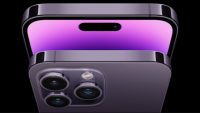Apple iPhones to Continue Using Qualcomm 5G Modem Chips
September 13, 2023
Qualcomm has extended its deal with Apple to supply 5G modem chips, leading to speculation that the iPhone maker is behind schedule on its plan to bring the tech in-house. Apple has designed its own phone chips since 2013, and is currently using the A16 Bionic, manufactured by TSMC. The A16 functions as the phone’s brain but doesn’t handle external communications with cell towers. Apple has been developing its own modem chips since 2018, but apparently doesn’t feel they’re ready for prime time and, understandably, doesn’t want to risk a public debacle by rushing it.
The plan, however, is to bring critical aspects the company’s multibillion-dollar semiconductor business under Cupertino’s big tent rather than relying on external suppliers. In 2019 Apple paid $1 billion for Intel’s 5G unit in the hopes it would speed its modem chip development efforts in time to cut Qualcomm loose this year for the 2024 models.

The iPhone 15, shipping this week, was to have been among the last Apple phones to use Qualcomm modems. But CNBC says “analysts have suggested that it will be challenging for Apple to move away from Qualcomm’s chips because of their complexity.”
Apple is believed to be Qualcomm’s largest customer, generating nearly 25 percent of the San Diego-based tech firm’s revenue, per USB. In an ironic twist, Apple — whose licensing fees have raised ire across industries — sued Qualcomm in 2017, citing exorbitant fees, then settled two years later. In 2022, Qualcomm collected about $1.9 billion in cellular licensing fees from Apple, according to CNBC.
“Qualcomm said on Monday that it will supply Apple with its chips for its smartphone launches in 2024, 2025 and 2026,” Financial Times reports, noting that “terms of the deal were not made public but Qualcomm said they were similar to the original deal struck in 2019, when Apple withdrew its legal claims.”
“The new Qualcomm deal leaves open the prospect of Apple phasing in its own chips into its smartphones over the next three years if they are ready,” Financial Times writes, adding that Apple is seeking to develop its own tech solutions “from software to silicon.”
Apple is certainly no laggard when it comes to silicon tech. The M2, the second generation of its flagship chip, is a monster. Built on a 5-nanometer process with an 8-core CPU, up to 10-core GPU, it also has a 16-core neural engine.The M2 powers everything from Apple’s computers to the Vision Pro mixed reality glasses expected to ship next year, which features a homegrown chip, the R1, custom-designed for cameras and augmented reality.

No Comments Yet
You can be the first to comment!
Leave a comment
You must be logged in to post a comment.